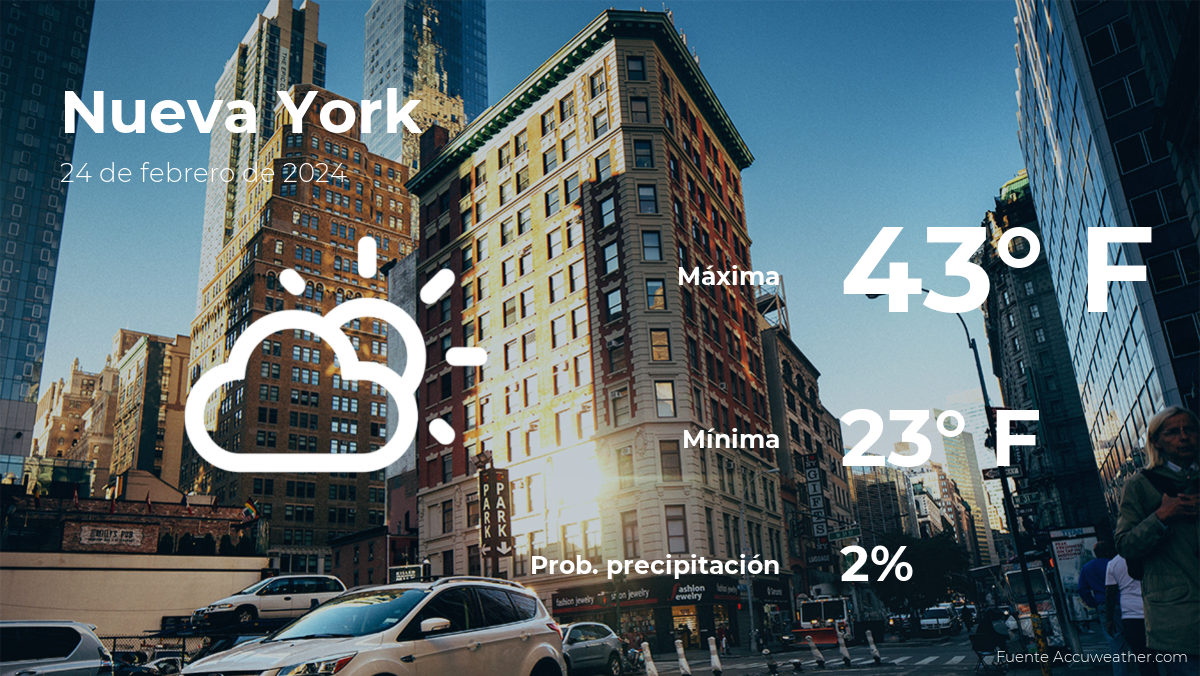
By The newspaper
24 Feb 2024, 06:00 AM EST
Still don’t know what to wear to go out on the streets of New York this Saturday? The weather forecast for New Yorkers in the following hours indicates temperatures that will fluctuate between 43 degrees Fahrenheit (6ºC) maximum and 23 degrees Fahrenheit (-5ºC) minimum. In addition, the thermal sensation, that is, “real temperature” that your body will feel will be around 41ºF (5ºC) maximum and 41ºF (5ºC) minimum.
Additionally, wind gusts are expected to reach a maximum of 9.32 mph during the first half of the day and 6.84 mph overnight, so appropriate clothing is recommended. At this time of year, sunrise will take place at 6:38 a.m., while twilight will occur at 5:41 p.m. In total there will be 11 hours of sun throughout the day.
The weather forecast for tomorrow in New York
As for the weather in New York, little cloudiness is expected tomorrow. Temperatures will vary between 34 and 39 degrees Fahrenheit (1 and 4 degrees Celsius).
Don’t forget to check the latest weather news at www.eldiariony.com/clima
The weather in New York
New York offers a mainly humid climate, with cold winters and hot summers. Rainfall is common throughout the year, with storms during summer and snowfall in winter. The proximity of the Atlantic coast helps soften extreme temperature variations. The coldest months are December and March, while the hottest are between July and August.
What is the climate in the United States?
A country as large as the United States has very different climates depending on the region and time of year. On the East Coast, the dominant climates are the humid subtropical climate in the southeast of the country and the humid continental climate further north, specifically, towards latitudes between 40° N and 70° N.
The American Northeast has a humid continental climate with continuous rain year-round, turning into storms in summer and snow in winter. The southeastern United States has a humid subtropical climate with high summer temperatures, cool winters, and abundant rainfall.
On the western side of the United States there are at least three major predominant climates: semiarid, arid, and Mediterranean. The cold semiarid climate encompasses the west central and north-south United States, with little rainfall and low temperatures.
The southwest has a cold or hot arid climate, with freezing winters and mild summers and extremely hot summers and mild winters. Both have little chance of precipitation given their dry condition. The Mediterranean climate occurs in the coastal area of the American West and has rainy, mild winters and dry, hot summers.
